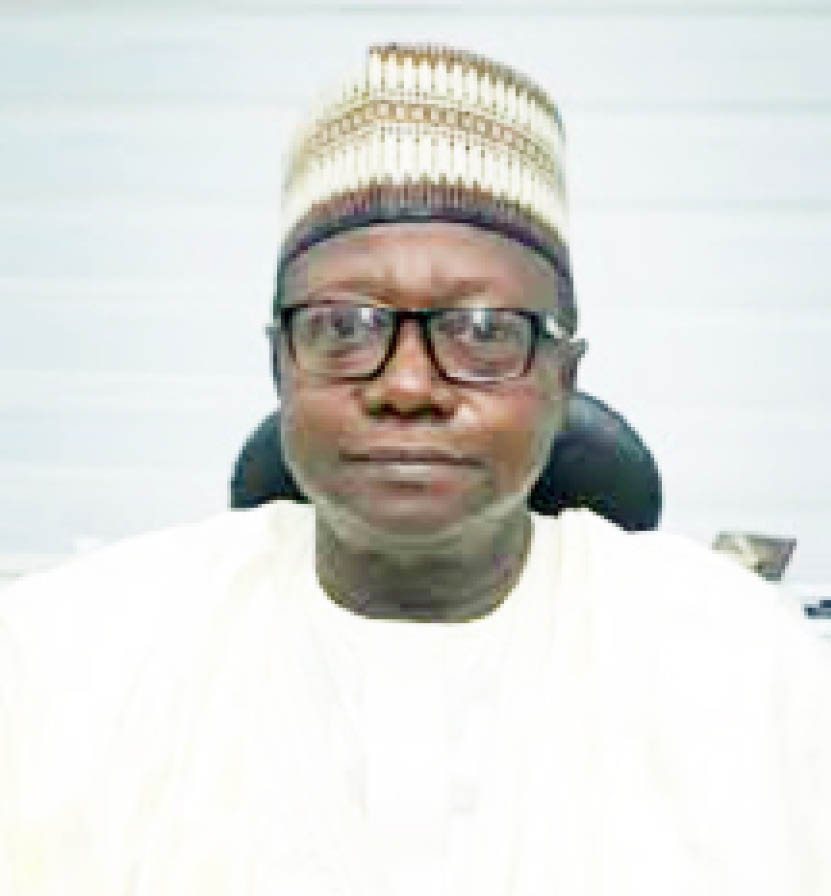Before a new administration takes over the affairs of the country, Nigerians are anticipating the next national exercise that seeks to have accurate data on the number of individuals that reside in the 923,768 sq. km territory.
Described as the most populous country in Africa, Nigeria last conducted its population census in 2006, which concluded that the total population was 140 million.
Seventeen years down the line, the country is yet to conduct another census which is against the 10 years recommendation of the United Nations for countries to do the exercise to avail them on data of population size which helps for development and planning for policy intervention.
Consequently, the country has over the years relied on population estimates by the United Population Development Fund (UNFPA) to estimate its population.
- Two months to go: Buhari Fails To Fulfill Campaign Promises On Poverty Reduction, Unemployment
- How Katsina farmers ‘harvest’ money from sugarcane
This, according to the United States Census Bureau, is done through the Cohort Component Method, used to calculate detailed statistics such as population by age and sex, total fertility rate, infant mortality rate, and population growth rate.
2023 census will be Nigeria’s first digital
Census exercise is one of the most rigorous activities a nation could embark on as it involves data generation through solicitation of detailed information from respondents. Using manual imputation and computation leaves room for human error, thus the need for digital census to reduce such error to minimal.
According to the National Population Commission, the digital nature of the census would increase the accuracy of information as such, the use of electronic forms placed in Personal Digital Assistant (PDA) tablet devices will be used to capture information on all buildings, houses and people in enumeration areas.
This is in addition to geographic information systems (GIS) and satellite imageries that would be used to construct a census map on dividing the country into enumeration areas.
The commission said “the digital frame produced is a major tool for the planning of human and material resources for the Census. This determines the enumerators’ assignment areas and forms a basis for distribution of materials during the Census.”
With this, it stated that activities of enumerators will be monitored to avoid collection of data from different enumeration areas as the PAD has been geofenced.
The census, initially stated for March 29 to April 2 was shifted to May 3 to May 7 due to postponement of the gubernatorial elections by a week.
Census to cost N869bn
Relying on technology means the exercise would be cost sensitive to build the data infrastructure for the exercise which would be subsequently relied on.
The NPC therefore said for this to be achieved, N869bn is needed for its success out of which N626bn would be expended on the actual census while N243bn would be used for follow-up operations through 2025.
From this, it said N60.7bn would go to acquisition of 405,000 additional local content tablets and accessories; N76.8bn to train 885,000 persons for building numbering and household listing of all building and households in the country for 7 days at an average cost of N12,410 per person per day, building numbering and household listing of all building and households in the country for five days at an average cost of N12,018 per person per day for the cost of N53.1bn.
It also includes the enumeration of all persons listed during the building numbering and household listing in the entire country for 5 days at an average cost of N12,018 per person for the cost of N53.1bn, data analysis, dissemination, production of monographs, thematic maps, population atlas for dissemination in all states and the 774 LGAs for N5bn, internet and connectivity for data transmission by census functionaries for N2.7bn, conduct of post enumeration survey in sampled EAs to match the household data for validation at the cost of N18bn, among others to be spent for the exercise.
885,000 to be recruited
The NPC also disclosed that 885,000 people will be recruited as ad-hoc staff to conduct the exercise through e-recruitment.
The commission explained that this model was adopted to ensure widespread applications from all over the localities in the country, minimize bias and ascertain that all qualified Nigerians are given equal opportunity to apply and be recruited.
Those to be engaged during the exercise are facilitators, training centre administrators, monitoring & evaluation officers, data quality managers, data quality assistants, supervisors, enumerators and special work force.
Also, it stated that the bulk of personnel for the 2023 census will be drawn from the communities where they are resident to remove the huge logistics of moving personnel across the country.
Questionnaires will not seek respondents’ religion, ethnicity
To avoid the controversies that census has generated in the past, the commission decided to remove questions on religion and ethnicity in the questionnaire.
This, it stated, was taken in due consideration of the sensitive nature of the issues within the Nigerian polity and the need to save the census data from needless controversies and attention.
A statement by the Director, Public Affairs of NPC, Isiaka Yahaya, stated that the two notable questions were removed after “extensive consultation with data users and stakeholders in coming up with the questions to be canvassed in the next census. The overarching goal of the questionnaire is to generate data that will facilitate sustainable development. The questionnaire is robust and includes demographic characteristics of respondents and other socio-economic characteristics but without any question whatsoever on religion and ethnicity.”
No need to travel for census
Since the essence of the census is to have data for effective planning and necessary interventions, citizens need to be counted where they reside for policy makers to fashion out policies that would be encompassing.
According to Yahaya: “People should stay where they are, to be counted. They are not to move to their states of origin. It is totally against the essence of the census. You have to be counted where you reside because that’s where you enjoy the social facilities like education and health, among others.”
“Apart from this, when the time comes for people to be provided with infrastructure and other things, you will not allow the planners to have accurate figures. People are not to move.”
Internal Displaced Persons, others to be counted
For an inclusive census, the commission stated that it would capture internally Displaced Persons (IDPs) in their camps and ex-insurgents/terrorists kept in special holding facilities in Borno.
In an event in February, NPC’s State Director Kaxhalla Yerima, said “We will capture every Nigerian whether in their homes or at IDP camps, including those who have repented.”
Similarly, the commission stated that careful consideration has been given to the identification of IDPs, which it described as a new phenomenon in the social strata of the country.
“It is understood that each person can be found in varying locations in the country under different circumstances. IDPs have been created as a type of residence in the 2023 Census Questionnaire to ensure that they are captured under their varying population classification. The Census Department from the pre-tests of the methodologies and instruments for the 2023 census have identified that IDPS can be within a Regular household setting, in an Institutional (Long stay) setting or in a Floating/Transient Population setting.”
Modification of census questions
In a bid to update the questions that would be asked during the exercise, the commission said it has modified the questionnaire with the introduction of new questions when compared to the 2006 Census.
Some of the new questions introduced include: Questions on birth registration to identify people that have registered their births in the country and with which agency, for literacy, options have been changed to know those that can read or write with understanding and those that can only read but cannot write with understanding.
“Under nationality, a variable has been introduced, that is, dual nationality to identify people who are Nigerians and have another nationality. The title ‘Persons living with disability’ was replaced with ‘Persons with difficulties in performing certain tasks’ in line with the Washington D.C recommendations.”
It said two variables, albinos and speech, have been introduced into the questions.
“On Economic Characteristics, the 2023 PHC questionnaire will reference 7 days from census night. New variables have also been added to this section namely, engagement in work, reason for inactivity and employment status.”
“The Information Communication Technology section has been introduced into the individual persons section with the aim of soliciting answers to three variables – owned ICT devices, devices used to access internet, and usual place of Internet access.”
“Also, the Fertility and Mortality section was introduced into the persons section of the questionnaire because of the need for robust data to close gaps in development planning.”
“In the Housing and Amenities section, more questions on sanitation has been introduced with variables covering Solid Waste Storage, Solid Waste Disposal, Number of Toilet Rooms, Waste Water Disposal, and Sharing of Toilet Facility which is in line with the Sustainable Development Goals 6 (Clean Water and Sanitation) which states that, by year 2030, Nigeria can achieve access to adequate and equitable sanitation and hygiene for all and end open defecation, paying special attention to the needs of women and girls and those in vulnerable situations.”

 Join Daily Trust WhatsApp Community For Quick Access To News and Happenings Around You.
Join Daily Trust WhatsApp Community For Quick Access To News and Happenings Around You.


